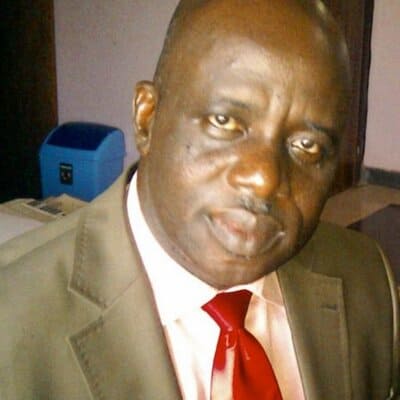
Let me welcome you to a sparkling new AD 2023. Like most people, you have hopes and expectations for the year. This is in order. May all your dreams come true and all your prayers be answered.
If you are in employment, it is safe to say your hopes for this year have significant aspects that have to do with your job and career. It is natural that you want to grow and make progress. Now, whether your dreams come to pass or not is to a very large extent in your hands; after the prayers, you need to roll up your sleeves to do some strategic analysis and take some decisions and actions.
The reality is that the corporate world is a very competitive place; so it can take some time to climb the corporate ladder and gain recognition for your hard work. You need to have patience and trust that your hard work will eventually pay off. However, note that:
1. Hard work is not enough
2. This doesn’t mean there aren’t things you can do to accelerate the growth of your career. It doesn’t mean “passive waiting” or “doing nothing”.
As a matter of fact, what you must realise and accept, ab initio, is that no one owes you a career. Therefore, you should be in the driver’s seat as far as managing and running your career are concerned, period.
First things first. What do you want out of your career? When and how do you want it? You need a career development plan. This is a personalised strategy that takes you from where you are today to what you envision as your career’s ideal peak.
By the way, it is important to remind you that career growth is a marathon, not a sprint. Accepting this fact as early as possible will make it easier for you to accept the bumps along the road to a successful career.
There are three elements of a basic career development plan:
Let’s take a look at each.
1. Where you are today: This includes, but not limited to, stating where or what you are now. It is not enough to say “I am a medicals sales representative”. Doing this is just only one piece of the full puzzle. Except you’ve reached the pinnacle of your career, obviously there’s a gap between where you are today and where you want to be in the future. For starters, you need to understand how wide that gap is—a process called “gap analysis”—which begins with more detail about where you are today, in terms of skills, capabilities, experience, and achievements.
2. The future state: this is where you want to be, as well as when you want to get there. It’s the unique way you define career success, whether that’s a specific role, working for a specific company, attaining a specific salary, or something else that’s important to you.
3. The journey: How you’re going to get there: This stage requires you to identify the skills, knowledge, education and experience for the ideal peak of your career. If, for instance, you aspire to become the national sales manager for a first tier pharmaceutical company within eight to ten years, you should ask:
What skills are required to be a national sales manager?
- How much relevant experience should a national sales manager have?
- What achievements should a national sales manager have?
Find answers to these questions. Look at job postings for the positions you want. What skills, certifications, technical abilities, or demonstrated career achievements are employers looking for? Talk to current holders of such position that you know.
Your career development plan is a roadmap for your next 10-plus years; so be detailed and cut everything into manageable chunks. If you want to become an NSM in the next eight to ten years, you’ll need to begin your mid-level management position in the next three to five years to stay on track. In fact, your next milestone shouldn’t be four years in the future; instead, make it three to six months. Thus, in setting your goals, you need to be asking:
What work project will add to my list of achievements?
What skill can I learn over the next three to six months to advance my career and close the gap?
What networks do I need to develop? What relationships do I need to invest in?
Don’t forget that effective goals must be SMART – Specific, Measurable, Achievable, Relevant and Time-bound.
As you proceed with your career journey to the top, here is a list of strategies and tactics you can employ:
• Know yourself;
• Keep a record of your achievements;
• Build your personal career capacity and competence;
• Adopt a continuous self-development and improvement philosophy;
• Create a personal brand of value;
• Understand that work is a daily competition;
• Develop industry and workplace networks;
• Be visible, online and offline;
• Don’t be afraid to job-hop;
• Watch your personal habits and presentation;
• See the big picture;
• Seek for feedback.
Tunde Oyeniran, B Pharm. MBA, a sales/marketing strategist, selling/sales management trainer and personal sales coach is the lead consultant, Ekini White Tulip Consulting Limited, Lagos. We deliver Training, recruitment and field force management solutions.
Feedback Channels: 080-2960-6103 (SMS/WhatsApp)/ekiniwhitetuliptraining@gmail.com or check out https://fb.me/EkiniWhiteTulipConsulting









